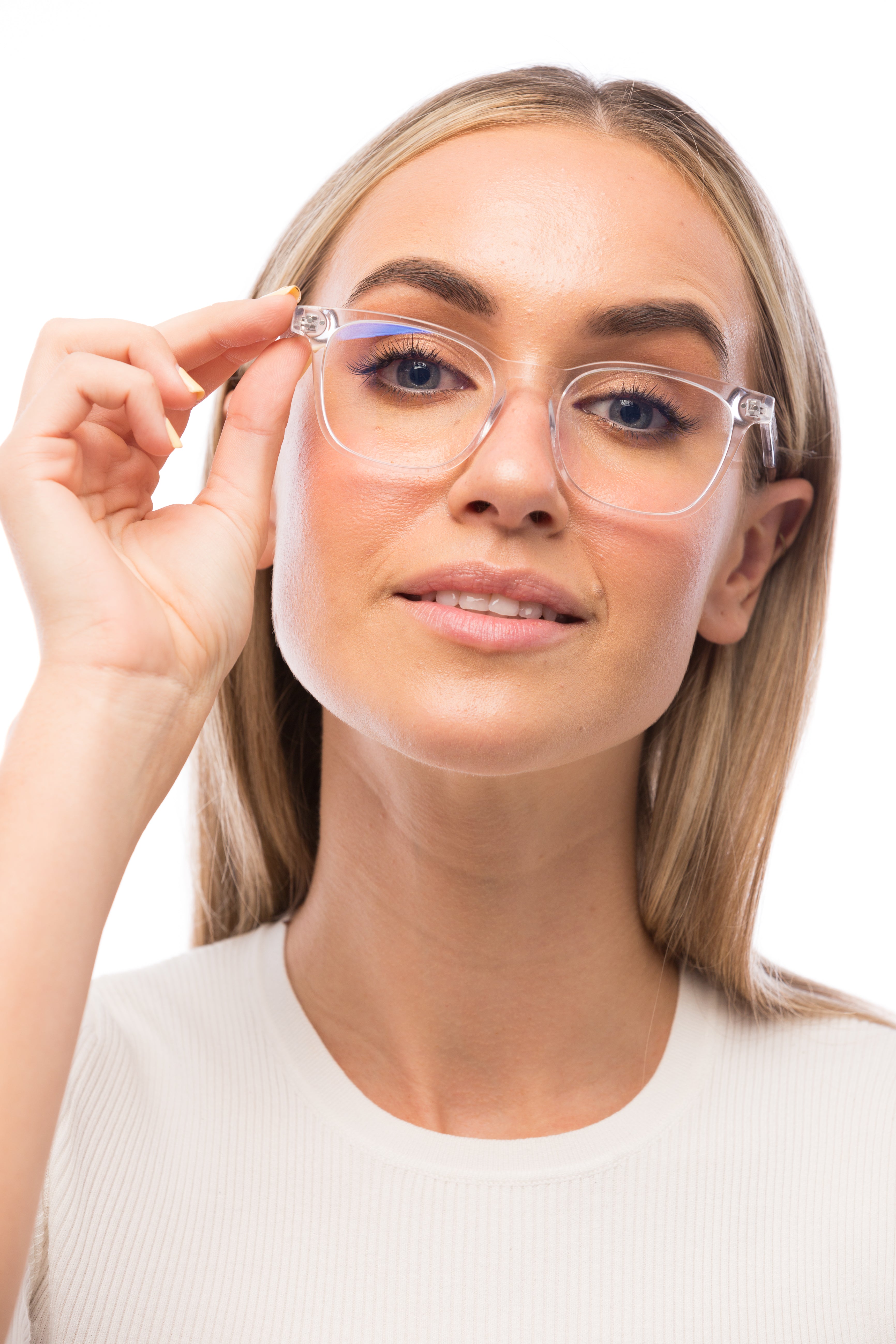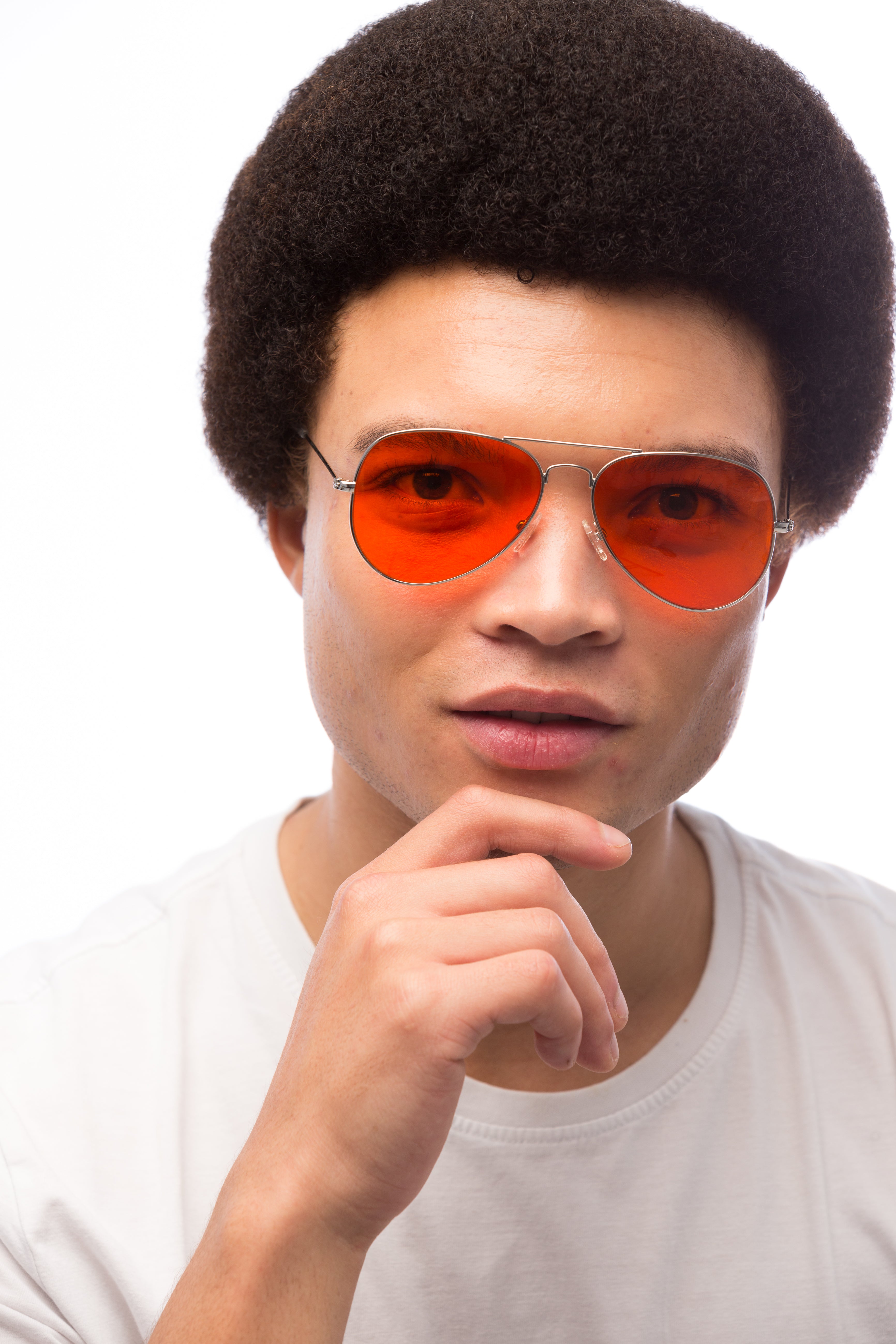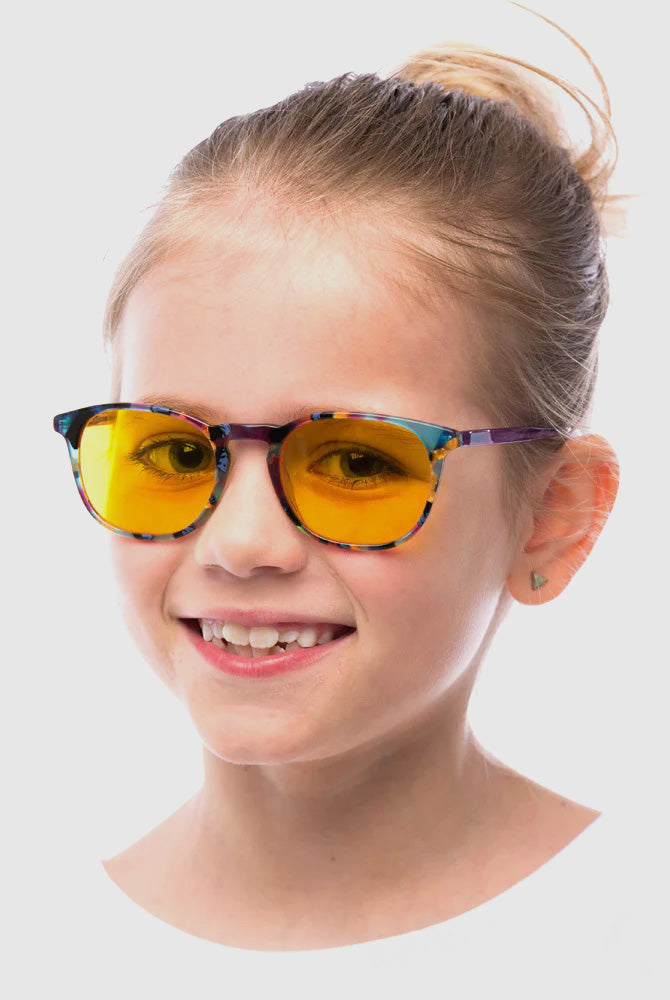What are Blue Light Glasses?
Andy MantBlue light glasses are gaining incredible popularity. However, when it comes to determining the best pair of blue light glasses its important to understand what makes an excellent pair of blue light glasses according to the science.
Blue light glasses are a type of eyewear frame that contains an optical lens intended to filter out or block harmful frequencies of blue-violet light that are often emitted from digital devices and LED light sources.
Blue light glasses were invented back in the 1960s and since then science has allowed some brands to innovate their technology to conceive blue light glasses that have been fully optimised.
What is Blue Light, and Should we be Concerned?
Blue light is defined as high energy visible light. Blue light is emitted from the sun or artificial sources such as digital screens, fluorescent lighting, televisions, and our smart phones.
This type of lighting has been shown in academic scientific studies to be harmful to the eye and lead to digital eye strain, cause migraines, generate photophobia and even disrupt our sleep. You can read more about how blue light glasses can help with sleep here.
Blue light from the sun has been demonstrated as an exceptional regulator of circadian biology. It helps regulate some of our hormones, helps with production of serotonin and dopamine and is essential for the creation of melatonin later in the evening.
Blue light in isolation from screens can damage our eyes and lead to eye related conditions such as blurred vision, headaches, and migraines. Detrimental artificial blue light has been shown in studies to be mitigated by blue light filters. Blue light glasses can also be worn all the time under the correct circumstance.
Blue light after dark is a negative thing as it deceives our brain’s circadian rhythm into acknowledging its daytime and to be stimulated and wake. This situation negatively influences our sleep/wake cycles. Blue light after sunset has been shown is studies to disrupt our sleep. Studies have shown blue light blocking glasses enhances sleep dramatically.
Types of Blue Light Glasses
There are 3 different types of blue light glasses and chances are you are wearing the wrong blue light glasses. Our light requirements change throughout the daytime and different blue light filtering spectacles should be worn to counterbalance the unfavourable consequences of harmful blue light. The 3 different types of blue light blocking glasses can be found below.
1. Computer Glasses
2. Blue Light Blocking Glasses
3. Light Sensitivity Glasses
What are Computer Glasses?
Computer glasses are a clear lens (occasionally with a pale-yellow tint) which are intended to filter out between 5-30% of blue-violet light from digital devices. Computer glasses are best worn during the daytime when unguarded against artificial blue light from screens and harsh LED lighting.
By minimising blue light, computer glasses can alleviate the symptoms of digital eye strain

Computer glasses are the most celebrated blue light glasses as their clear lenses and fashionable frames are not an embarrassment to wear. Learn more about what computer glasses are here.
What are Blue Light Blocking Glasses?
Blue light blocking glasses are a type of blue light glasses that are worn in the evenings to help facilitate enhanced sleep. Blue light blocking glasses, typically with a red or amber lens block blue light and filter green light.
Studies have shown an unmistakable banding of blue and green light that interrupts melatonin production and negatively influences our sleep quality. This banding of light is found between 400 nanometers and 550 nanometers. The best blue light blocking glasses to improve sleep will eliminate 100% of light in this banding.

Blue light blocking glasses (amber/red lens) have been shown in studies to significantly improve sleep when pitted against clear lenses. If you are looking to improve your sleep then wearing blue light blocking glasses 2-3 hours before bed is a great start.
What are Light Sensitivity Glasses?
Light Sensitivity Glasses are blue light glasses that block blue light between 400 nanometers and 455 nanometers, which studies have argued to be the most detrimental. Light Sensitivity Glasses are yellow in colour as this colour allows for enhanced blue light blocking than regular computer glasses. Sufferers of photophobia benefit from wearing Light Sensitivity Glasses as these individuals are sensitive to the banding of light these blue light glasses block.

Light Sensitivity Glasses are also great at reducing migraines, headaches, and digital eyestrain. They may also be beneficial for night shift workers.
Other Ways to Manage Blue Light
The top 5 ways to help reduce blue light related issues are listed below.
1. Change Vision Distance. Every 20 minutes, start at an object about 20 feet away for 20 seconds. This will help manage eye strain. This is called the 20-20-20 rule.
2. Take Regular Screen Breaks. This will allow your eyes to relax and not get strained and reduce your daily screen time. It also limits your exposure to blue light.
3. Get More Sunlight. Take breaks outside to help regulate your circadian rhythms
4. Visit Your Optometrist. Blue light may not be the issue and you may need prescription glasses or contact lenses to help with eye strain and headaches. Read more on whether you can get blue light glasses with your prescription here.
5. Stretch. Working at a desk can make you stiff. By regularly stretching you can help manage strain and headaches related to poor posture.
Conclusion
If you wear blue light glasses these are a great remedy for the detrimental consequences of blue light on our eye health and sleep.
The ultimate issue with blue light glasses is typically that the incorrect pair are worn for the wrong situation.
By choosing an exceptional pair of scientifically backed computer glasses you can conquer digital eye strain during your extended days in the office by protecting your eyes from the harmful effects of blue light.
By choosing a scientifically manufactured pair of blue light blocking glasses (amber or red lenses) you can regain your energy through better sleep. Wear blue light blocking glasses after sundown and about 2 or 3 hours before your scheduled bed time.
By choosing a pair of Light Sensitivity Glasses that have used scientific principals to help manage harmful blue light you can reduce symptoms of photophobia and migraines.
You can test your blue light glasses here, to ensure you have an optimal pair.
BON CHARGE blue light glasses are registered as medical devices in the ARTG, FDA registered and also manufactured in an optics laboratory.




